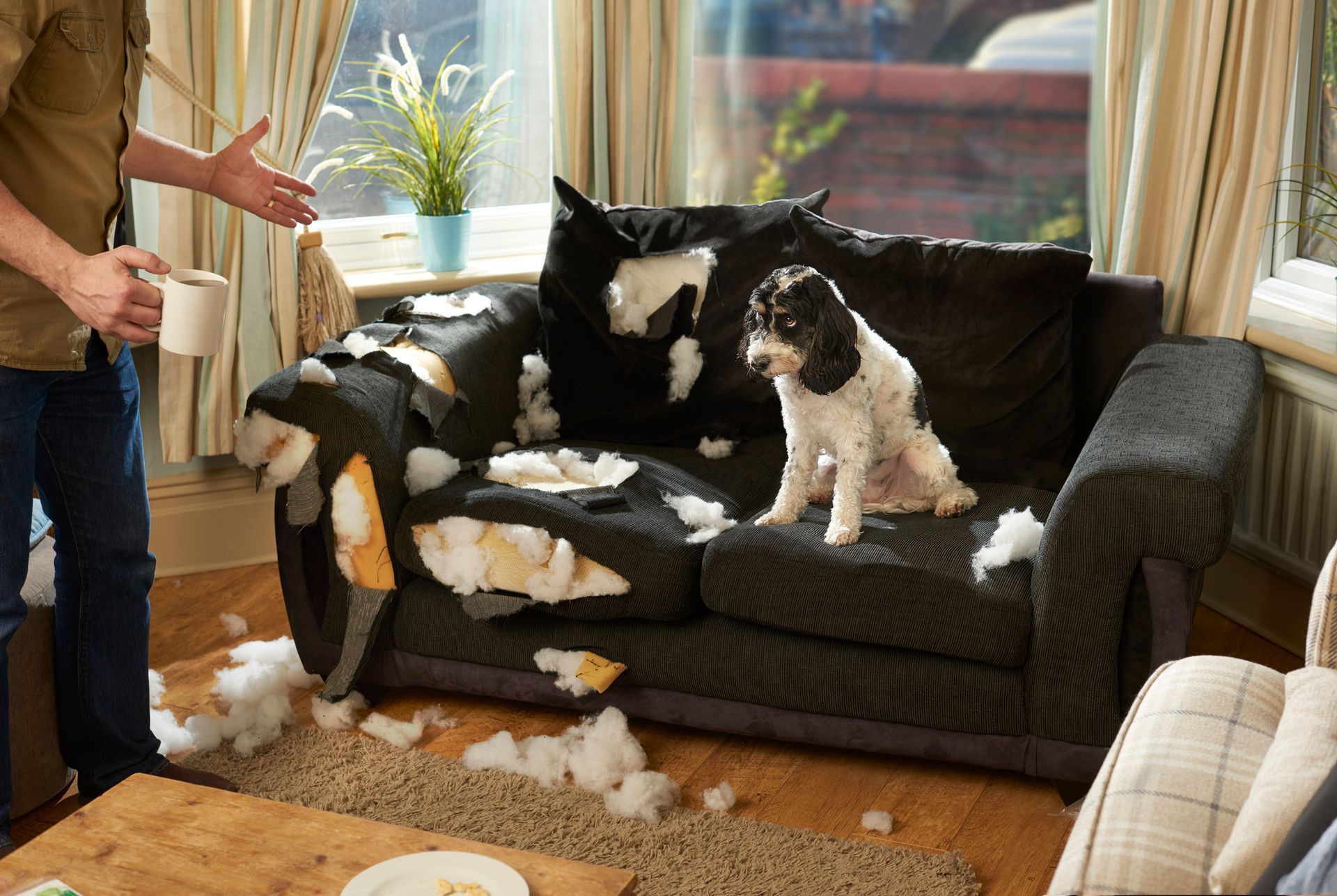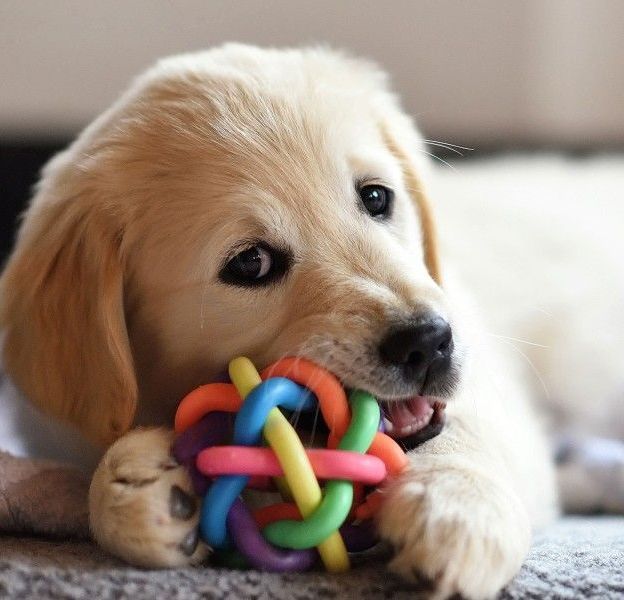Training Your Puppy Not to Chew on the Wrong Things
Chewing vs Proper Dog Training Corpus Christi
Chewing is a natural behavior for dogs—especially puppies—but when your favorite shoes, furniture, or baseboards fall victim to sharp little teeth, it quickly becomes a problem. The good news is that with consistency, patience, and the right techniques, you can train your dog or puppy to chew only on appropriate items.
Before addressing the behavior, it's important to understand the reasons behind it. Puppies chew to explore their environment and relieve the discomfort of teething. Adult dogs may chew due to boredom, anxiety, or simply because they enjoy it. Knowing the cause can help you tailor your training approach. The first step is to give your dog acceptable alternatives. Invest in a variety of chew toys to figure out what your dog likes best—some prefer rubber toys, others like soft plush or rope. Rotate them regularly to keep things interesting. For teething puppies, you can even freeze some toys for soothing relief.
While training is in progress, make it harder for your dog to make mistakes. Put shoes in closets, use baby gates to block off certain rooms, and pick up items like cords, socks, and children's toys. The fewer temptations available, the more successful your training will be.
Speak With A Dog
Training Expert
Speak With A Dog Training Expert
Thank you for contacting us!
We will contact you shortly!
Please try again later.
Chewing vs Proper Dog Training Corpus Christi
Chewing is a natural behavior for dogs—especially puppies—but when your favorite shoes, furniture, or baseboards fall victim to sharp little teeth, it quickly becomes a problem. The good news is that with consistency, patience, and the right techniques, you can train your dog or puppy to chew only on appropriate items.
Before addressing the behavior, it's important to understand the reasons behind it. Puppies chew to explore their environment and relieve the discomfort of teething. Adult dogs may chew due to boredom, anxiety, or simply because they enjoy it. Knowing the cause can help you tailor your training approach. The first step is to give your dog acceptable alternatives. Invest in a variety of chew toys to figure out what your dog likes best—some prefer rubber toys, others like soft plush or rope. Rotate them regularly to keep things interesting. For teething puppies, you can even freeze some toys for soothing relief.
While training is in progress, make it harder for your dog to make mistakes. Put shoes in closets, use baby gates to block off certain rooms, and pick up items like cords, socks, and children's toys. The fewer temptations available, the more successful your training will be.
Speak With A Dog
Training Expert
Speak With A Dog Training Expert
Thank you for contacting us!
We will contact you shortly!
Please try again later.


The Importance of Supervision with Corpus Christi Dog Training
When you catch your dog chewing on something inappropriate, interrupt calmly with a verbal cue like “Ah-ah” or “No.” Then immediately offer an approved chew toy. Praise them when they take the toy—this positive reinforcement helps them learn what’s acceptable. Never yell or punish harshly; it can create fear or confusion, especially in young pups.
For persistent chewers, you can try applying a pet-safe taste deterrent (like bitter apple spray) to items they repeatedly target. These sprays don’t harm your dog but taste unpleasant, discouraging them from going back. Always pair this with positive reinforcement for choosing the correct toy.
If you can’t supervise your dog, consider crate training or using a playpen. Dogs naturally avoid soiling or damaging their resting area, and having a safe, chew-proof space can prevent bad habits from forming. Be sure to give them something appropriate to chew on inside the crate.
Many dogs chew out of boredom. Providing regular physical and mental exercise reduces the urge to chew destructively. Incorporate daily walks, interactive play, and puzzle toys to keep your pup tired and content.
Training takes time. Everyone in the household should follow the same rules—if one person lets the dog chew on old socks, they’ll think all socks are fair game. With consistency and patience, your dog will learn to make better chewing choices.
The Importance of Supervision with Corpus Christi Dog Training
When you catch your dog chewing on something inappropriate, interrupt calmly with a verbal cue like “Ah-ah” or “No.” Then immediately offer an approved chew toy. Praise them when they take the toy—this positive reinforcement helps them learn what’s acceptable. Never yell or punish harshly; it can create fear or confusion, especially in young pups.
For persistent chewers, you can try applying a pet-safe taste deterrent (like bitter apple spray) to items they repeatedly target. These sprays don’t harm your dog but taste unpleasant, discouraging them from going back. Always pair this with positive reinforcement for choosing the correct toy.
If you can’t supervise your dog, consider crate training or using a playpen. Dogs naturally avoid soiling or damaging their resting area, and having a safe, chew-proof space can prevent bad habits from forming. Be sure to give them something appropriate to chew on inside the crate.
Many dogs chew out of boredom. Providing regular physical and mental exercise reduces the urge to chew destructively. Incorporate daily walks, interactive play, and puzzle toys to keep your pup tired and content.
Training takes time. Everyone in the household should follow the same rules—if one person lets the dog chew on old socks, they’ll think all socks are fair game. With consistency and patience, your dog will learn to make better chewing choices.
